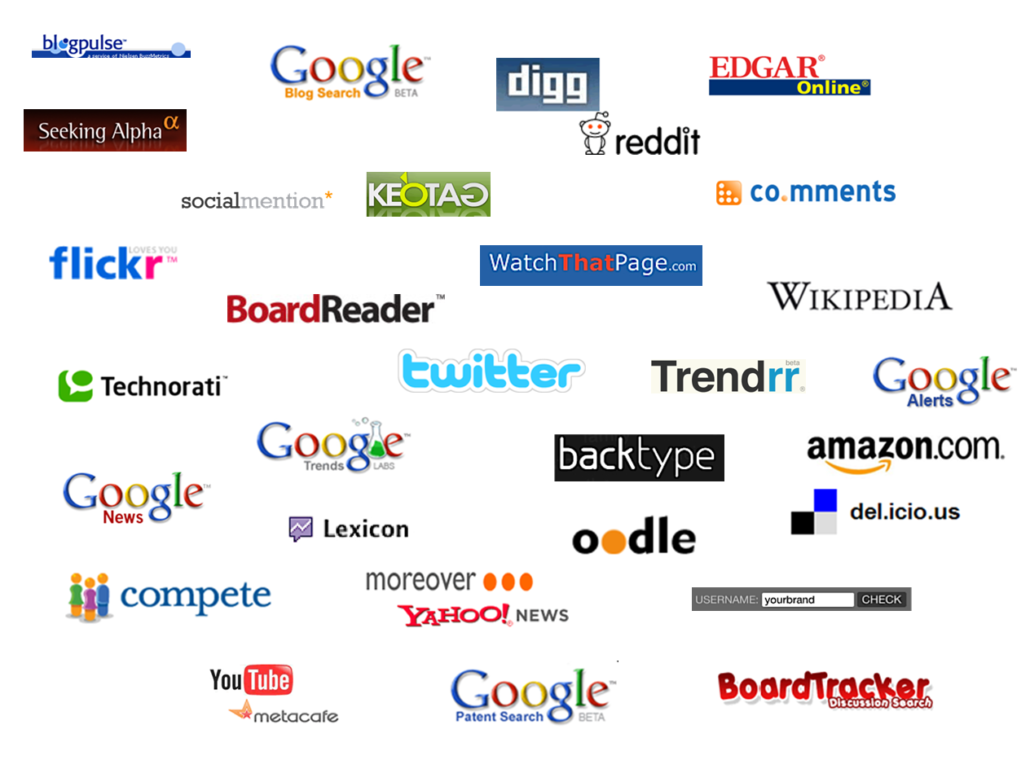How to attract more visitors – The 10 most important visitor resources for blogs
Is there a secret, why corporate blogs and business blogs have more success than traditional corporate websites? Is it the modern architecture of blogging systems? Is it the exiting and exhilarant spelling style of bloggers? Or is a conspiracy of the digital natives against the internet retirees?
Nothing of it! Blogs and bloggers are simply using some very effective methods to attract visitors.
The 10 most important visitor resources for blogs:
- Feeds – Blogs are read via feed reader predominantly, not via browsers any longer. Well-known blogs have more than 100.000 feed reader per day. On a normal day in Germany, there are some blogs with more than 10.000 feed reader.
Highlight your RSS feed on your blog and take advantage of a feed service like Feedburner - Google – Visitors through search engines are the second largest visitor group of blogs. Bloggers use always methods of search engine optimization (SEO) in order to achieve good rankings with important key words.
Write in a search engine friendly way. Use Google’s Webmaster Tools and install a SEO plug-in like wpSEO! - Pingbacks and Trackbacks – Links don’t just offer a value-add for your own users but also backlinks and numerous new users.
Link all directions as often as possible and learn to use trackbacks in a proper way. - Twitter – with the micro-blogging service you can approach users faster than with your blog. News with real add-on information are spread via Twitter the “viral” way very fast.
Work on broadening your Twitter follower base. Promote your Twitter account on your blog and vice versa. Twitter your blog postings at the right time! - Social Networks – Promote your important blog postings on XING, Facebook or LinkedIn.
- Forums – Are you an accredited expert, for example a wine blogger?
If you see in a forum the question: What are the most expensive wines or the 10 most dry French ones? Write a posting on your blog and post only the link in the forum. - Blog directors and RSS feed directories – Just some selected directories (Technorati, Blogoscoop, Bloggerei, Wikio) generate new visitors. Especially, if you are ranking well in these directories.
- Your comments on other blogs – Make yourself heard on other blogs as a constructive business partner – far and foremost in not well-known blogs. This will result in new visitors. Beware the free of sense comments! This will damage your own blog reputation in the long term.
- Comments of others on your blog – This is the secret of well-visited blogs:
Be responsive to comments – You will win permanent visitors! - Guest writers – Invite readers/users, other bloggers or “VIP’s” from the offline and online world to write guest posts. Every guest author will be talking to others about it or link directly to this post.
Your creativity has no limits: travel agents blog about journeys of their customers, hotel managers animate guests to write about their vacation resort, … Your customers don’t want that? Ask them if they want to publish some of their holiday pictures on your homepage! You will be surprised seeing the reaction…
Did I forget something? Is your ranking of visitor resources different? Where do you see options to attract more visitors for your blog? Looking forward reading your comments and reading your ideas and thoughts!
 Guest writer Karl-Heinz Wenzlaff is the German expert and consultant for business blogging. He knows the useful tips and tricks, and is specialized on professional company blogs, product blogs or employee blogs. Some month ago, he helped me migrating from Blogger to WordPress in order to set up a magazine theme.
Guest writer Karl-Heinz Wenzlaff is the German expert and consultant for business blogging. He knows the useful tips and tricks, and is specialized on professional company blogs, product blogs or employee blogs. Some month ago, he helped me migrating from Blogger to WordPress in order to set up a magazine theme.
Thank you for being one of my guest writers, Karl-Heinz.







